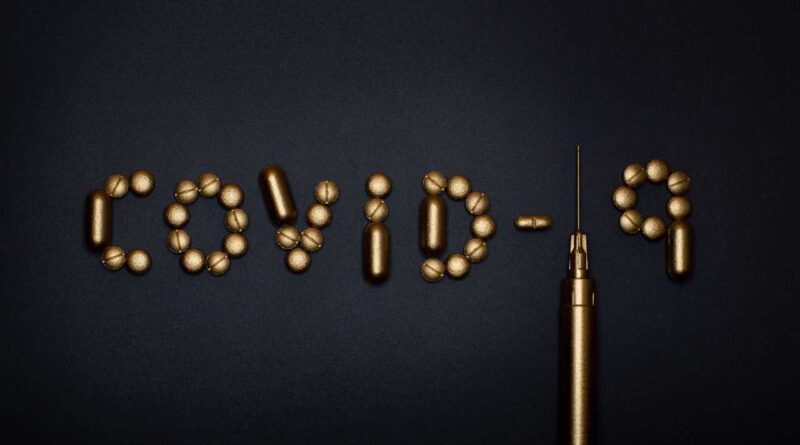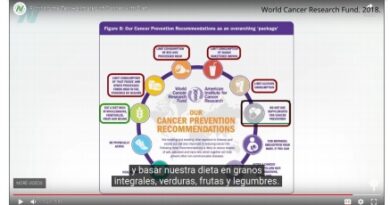COVID-19 Vaccines for Young Children
HEALTH
by Maria Valeria Bautista Rojas
 It’s easy to feel overwhelmed by all the new information on COVID-19 and the choices we have to make about our own health. Now that the CDC recommends children 6 months and older to get the booster vaccine, there is another important question you may be asking: Should my young child receive the COVID-19 booster vaccine? Here are some things you should know.
It’s easy to feel overwhelmed by all the new information on COVID-19 and the choices we have to make about our own health. Now that the CDC recommends children 6 months and older to get the booster vaccine, there is another important question you may be asking: Should my young child receive the COVID-19 booster vaccine? Here are some things you should know.
Even though COVID-19 infection causes mild symptoms in many children, there is still a risk of severe disease and hospitalization. So far this year (from January 4th – February 15th, 2023), about 670 children aged 4 years or younger and 1,007 children aged 5 years or older died due to COVID. Vaccines are still the best protection we have against COVID-related hospitalization and death.
In June 2022, the CDC recommended that children aged 6 months – 5 years receive the initial series of COVID monovalent vaccines (two monovalent doses of either Moderna or Pfizer-BioNTech). These vaccines are “monovalent,” which means that they protect against the original COVID-19 virus. However, this protection does not last forever.
More recently, in December 2022, the CDC said that children 6 months and older can now receive the bivalent COVID-19 vaccine. This vaccine is “bivalent,” which means that it protects against the original COVID-19 virus as well as the newer Omicron variants.
• Children aged 6 months – 5 years: Can receive the Moderna bivalent vaccine two months after completing the two-dose Moderna monovalent vaccination series.
• Children aged 6 months – 4 years: Can receive the Pfizer-BioNTech bivalent vaccine two months after receiving two doses of the Pfizer-BioNTech monovalent vaccine.
• Children who are older or immunocompromised have different vaccination schedules.
 According to the CDC, children can get their COVID-19 vaccines on the same day as other routine vaccines. An allergic reaction to the COVID-19 vaccine is rare, but your child’s healthcare provider will monitor your child for 15 minutes after getting the vaccine just in case. Like other vaccines your child receives, the COVID-19 vaccine may result in some mild side effects such as soreness where the shot was given, swollen lymph nodes, irritability, sleepiness, loss of appetite, chills, and headache. Talk to your child’s doctor about how to alleviate these side effects at home or if you have any questions or concerns.
According to the CDC, children can get their COVID-19 vaccines on the same day as other routine vaccines. An allergic reaction to the COVID-19 vaccine is rare, but your child’s healthcare provider will monitor your child for 15 minutes after getting the vaccine just in case. Like other vaccines your child receives, the COVID-19 vaccine may result in some mild side effects such as soreness where the shot was given, swollen lymph nodes, irritability, sleepiness, loss of appetite, chills, and headache. Talk to your child’s doctor about how to alleviate these side effects at home or if you have any questions or concerns.
Photo of children at school from RODNAE Productions and photo of pills speeling Covid 19 from Miguel Á. Padriñán from www.pexels.com
References
Centers for Disease Control and Prevention. CDC Newsroom Releases. December 9. 2022 www.cdc.gov.
Centers for Disease Control and Prevention. COVID-19 Vaccine Interim COVID-19 Immunization Schedule for Persons 6 Months of Age and Older. 8 December 2022.
Siegel DA, Reses HE, Cool AJ, et al. Trends in COVID-19 Cases, Emergency Department Visits, and Hospital Admissions Among Children and Adolescents Aged 0–17 Years — United States, August 2020–August 2021. MMWR Morb Mortal Wkly Rep 2021;70:1249–1254. DOI: http://dx.doi.org/10.15585/mmwr.mm7036e1external icon.
Hause AM, Marquez P, Zhang B, et al. Safety Monitoring of Bivalent COVID-19 mRNA Vaccine Booster Doses Among Children Aged 5–11 Years — United States, October 12–January 1, 2023. MMWR Morb Mortal Wkly Rep 2023;72:39–43. DOI: http://dx.doi.org/10.15585/mmwr.mm7202a5
“6 Things to Know about Covid-19 Vaccination for Children.” Centers for Disease Control and Prevention. Centers for Disease Control and Prevention, October 5, 2022. https://www.cdc.gov/vaccines/covid-19/planning/children/6-things-to-know.html.
“Coronavirus (COVID-19) Update: FDA Authorizes Updated (Bivalent) Covid-19 Vaccines for Children down to 6 Months of Age.” U.S. Food and Drug Administration. FDA. Accessed February 26, 2023. https://www.fda.gov/news-events/press-announcements/coronavirus-covid-19-update-fda-authorizes-updated-bivalent-covid-19-vaccines-children-down-6-months.
Interim COVID-19 Immunization Schedule for Persons 6 Months of Age and Older. Center for Disease Control and Prevention. Accessed February 26, 2023. www.cdc.gov.
“Possible Side Effects after Getting a COVID-19 Vaccine.” Centers for Disease Control and Prevention. Centers for Disease Control and Prevention. Accessed February 26, 2023. https://www.cdc.gov/coronavirus/2019-ncov/vaccines/expect/after.html?
CDC_AA_refVal=https%3A%2F%2Fwww.cdc.gov%2Fcoronavirus%2F2019-ncov%2Fvaccines%2Fside-effects-children-teens.html.
“Provisional Covid-19 Deaths: Focus on Ages 0-18 Years.” Centers for Disease Control and Prevention. Centers for Disease Control and Prevention. Accessed February 26, 2023. https://data.cdc.gov/NCHS/Provisional-COVID-19-Deaths-Focus-on-Ages-0-18-Yea/nr4s-juj3/data.
“Vaccine Timeline.” Historic Dates and Events Related to Vaccines and Immunization. Accessed February 26, 2023. https://www.immunize.org/timeline/.
Maria Valeria Bautista Rojas was born and raised in Bogotá, Colombia and moved to Florida when she was 12. She graduated in 2019 from Johns Hopkins University in Baltimore, Maryland with a B.S. in Neuroscience and a B.A. in Public Health Studies. She has experience working in Miami as a behavioral health case manager after graduation. Currently, she attends medical school at the University of Rochester School of Medicine and Dentistry. She is part of the Latino Health Pathway and is the President of the Latino Medical Student Association chapter at URSMD.

